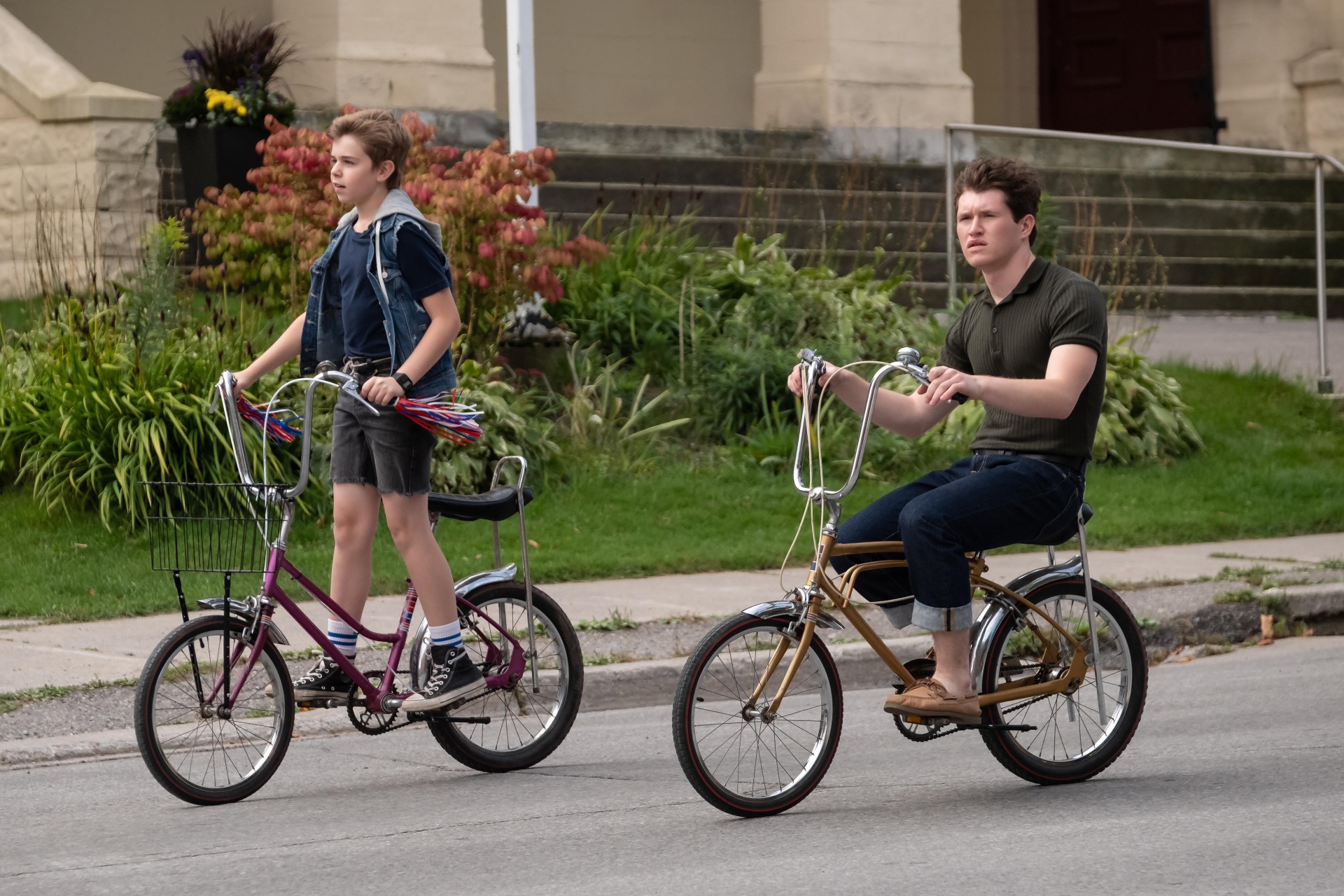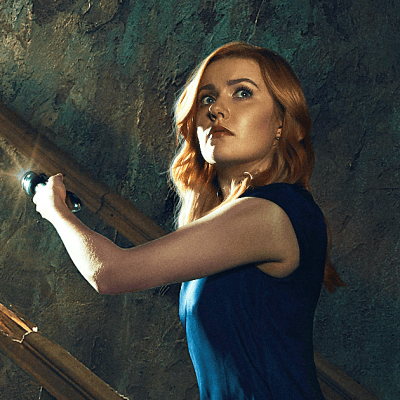First published in 1927, The Hardy Boys series of books created by Edward Stratemeyer has sold more than 70 million copies and been translated into more than 25 languages. The novels have been revised, rebooted, and reimagined at least four times since their debut and the eponymous characters have appeared in everything from comic books and TV shows to video games and cartoons.
Possibly the real mystery here is why there hasn’t been a television adaptation of this story on-air since the late 1990s, particularly when remakes and reboots have been all the rage for years. The CW currently has a hit Nancy Drew series on the air, and shows like Riverdale, Pretty Little Liars, and Veronica Mars have spent years reinforcing the idea that teenagers are surprisingly great at solving crimes. Whither, the Hardy Boys?
On Hulu, at last. This new adaptation of The Hardy Boys, starring newcomers Rohan Campbell and Alexander Elliot as the sleuthing siblings, is the fifth onscreen version of their story and its mere existence will be enough to delight some fans who just want to see their favorite characters come to life onscreen.
But although this The Hardy Boys series is a perfectly serviceable family mystery with a charming young cast, fans of the original series of novels may find themselves surprised by some of the changes from the source material. Of which there are quite a few – for both good and ill.
Let’s run down a few of the most significant.
The Hardy Boys Are Younger Than Usual
In the Hardy Boys novels, as in the Hulu show, Frank and Joe Hardy are brothers. But in the world of the TV series, they’re actually much younger than any version of their fictional counterparts that have come before. In the books, Frank is usually eighteen and Joe is seventeen – though there’s one set of stories where they’re seventeen and sixteen, respectively – but in the show, the brothers are sixteen and twelve. It’s an interesting decision, particularly since TV adaptations like this (looking at you, Nancy Drew) generally tend to go the other way, aging up their protagonists so that they can take part in more adult stories.
Making the Hardy boys younger than ever before does allow the Hulu series to appeal to a wider audience than it might otherwise be able to do. But the sudden four-year gap between the brothers makes their relationship strangely complicated. They no longer feel like relative equals and, as a result, their friendship here is quite a bit different than it is on the page. And to be honest, although Bridgeport is indeed a weird town, the fact that a group of high school teens is apparently just fine with constantly hanging out with a twelve-year-old is more than a bit strange.
The Hardy Family Dynamic is Quite Different
In the Hardy Boys novels, Hardy matriarch Laura is presented as an example of the ideal stay at home mom. She generally has little to do on her own, though the updated 2005 Undercover Brothers series did finally give her a job. (In it, she is a librarian.)
In the Hulu TV adaptation, she is a dogged investigative journalist and an all-around great example for her kids. A daughter of an overbearing mother, she apparently rejected her life of privilege in Bridgeport to marry the boys’ father Fenton and follow her calling to find the truth.
Read more
Unfortunately, however, she is also dead, and it is her apparent murder that sets her sons off on their path to become sleuths, as they work to solve this very close-to-home mystery. (Your mileage may vary regarding how you feel about the fact that Laura is basically killed off to drive emotional development for the men in her life.)
As for Fenton, he remains a big part of the story but is also strangely absent at the same time. Leaving the boys with his sister Trudy while he heads off to investigate his wife’s death, he seems to struggle with how to be the dad that Frank and Joe deserve. This is something of a shift from the novels, in which he is basically the dream ideal of a perfect father, so perhaps The Hardy Boys is meant as something of an origin story for Fenton, too.
Fewer Mysteries to Solve
In The Hardy Boys novels, Frank and Joe went on all kinds of adventures, traveling all over the United States and occasionally to far off locations like Mexico and Egypt in order to solve cases. In the Hulu adaptation, their story is almost entirely contained within the town of Bridgeport (clearly an analog to the Bayport of the books), where both boys are sent for the summer following their mother’s death.
As a result, a season-long mystery shapes up, albeit one with many moving pieces. As the boys investigate their mother’s death, they unearth dark family secrets, discover an object that may or may not have supernatural abilities, and reveal corruption within local institutions. But they’re not really solving mysteries in the way that many fans might have expected, and the series serves as something of an origin story for the pair as sleuths.
A More Diverse Central Ensemble
In many ways, the Hulu version of The Hardy Boys story has much more of an ensemble than any of its written counterparts do. In the novels, the Hardy boys are occasionally assisted in mystery-solving by a gang of (mostly male) friends, who don’t have much in the way of arcs of their own. In the Hulu adaptation, the brothers’ larger, much more diverse social group is directly woven into the fabric of the story the show is telling. (A trend which we can likely thank popular teen shows like Riverdale for.)
And though these characters are all based on figures from the novel, many of them are changed onscreen in ways that help modernize and update the story for a 2020 audience.
For example, Frank’s BFF Chet Morton is here reimagined as an earnest African-American farm kid; whereas in the novels he’s white, chubby, and obsessed with food. There, his non-athletic nature is usually played as comic relief, as is his love of the bright yellow “jalopy” named Queen he’s always working on. This TV version of Chet is much more of an everyman figure, a regular guy who loves small-town life in Bridgeport. He’s also dating Callie Shaw, which will probably be an issue at some point in the future since she’s Frank’s girlfriend in the books.
The decision to make Chet a young Black man is also a choice that feels particularly important, given the fact that the original books rarely feature characters of color and often include what we would now consider racist stereotypes of non-white people.
Female Characters Have Important Roles to Play
The fact that female characters don’t have much to do in The Hardy Boys novels isn’t really surprising – from a storytelling perspective, these books aren’t really meant for or aimed at female readers, after all. (And the folks behind them probably would have argued that if young women really wanted to read mysteries, well, we’ve got Nancy Drew for that. Which is likely what most of us read instead.)
Thankfully, the Hardy Boys TV show works hard to make space for female characters – and by extension, female viewers – in its world and, for the most part, it succeeds.
Callie Shaw, Frank’s generally nondescript book girlfriend, is here given an arc, a personality, and a story of her own. Technically, she’s not even Frank’s girlfriend yet, and though we all assume they’ll get together, it’s not a done deal. (Especially since she’s dating Chet.) But Callie has dreams of her own, which may not involve hanging on to boys from her small hometown.
As for the younger set, Joe’s very male best friend Biff Hooper is here reimagined as the tomboy daughter of the Bridgeport deputy sheriff. She is smart, brave, and loyal, and her burgeoning friendship with Joe is charming in a way that little else on this show is. Her mother’s occupation often creates very natural friction between the two and gives Biff a perspective of her own that can occasionally be at odds with her friends.
In Conclusion
Hulu’s The Hardy Boys is truly a strange specimen. As a series, it’s a perfectly decent family-focused mystery, but as an adaptation of the novels, it leaves quite a bit to be desired. Changing the brothers’ ages not only impacts their relationship with each other, it basically makes the series feel as though it has little in common with the original story beyond the characters’ names.
That said, the series’ vaguely 1980s-ish period setting does give it something of a timeless feel, which accurately reflects how many of us still see the novels. And this The Hardy Boys does add some long-needed elements to the franchise, like characters of color and women with arcs of their own. But it sort of forgets to get the part that really matters right – and that’s the brothers at its center.

